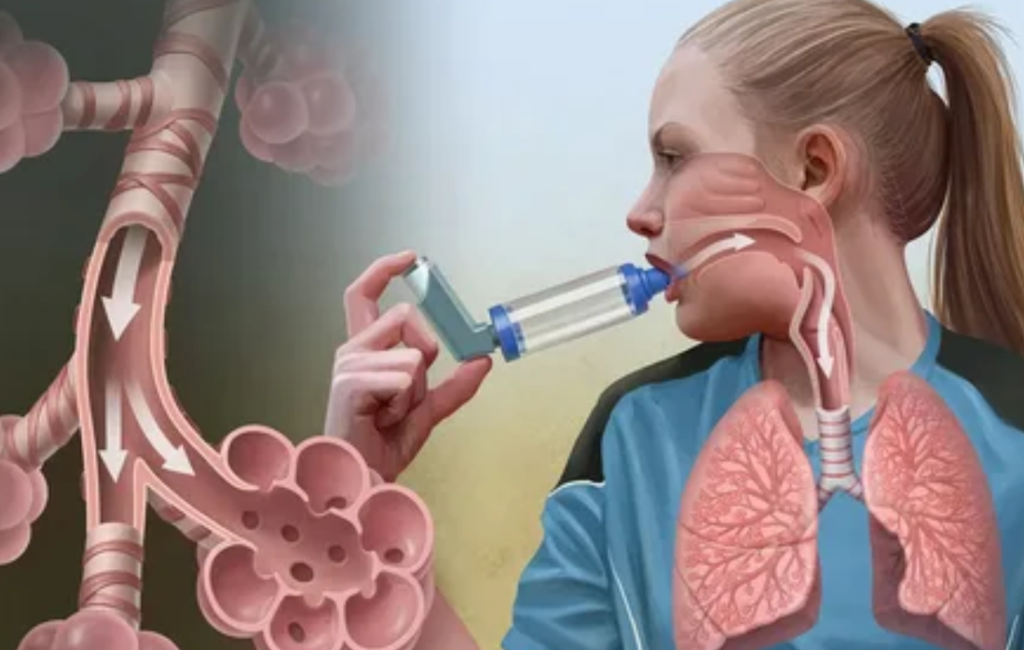
Asthma is a chronic respiratory condition that affects millions of people worldwide, impacting their quality of life and requiring ongoing management. Understanding asthma is essential for both those living with the condition and their caregivers. Here are twelve important things to know about asthma:
- Definition and Basics: Asthma is a chronic inflammatory condition of the airways characterized by recurring episodes of wheezing, breathlessness, chest tightness, and coughing, especially at night or in the early morning. These symptoms vary in severity and frequency among individuals.
- Causes: The exact cause of asthma remains unknown, but it is believed to result from a combination of genetic and environmental factors. People who have a family background of asthma or allergies face an increased likelihood of developing the condition.. Environmental triggers such as pollen, dust mites, air pollution, and respiratory infections can exacerbate symptoms.
- Symptoms: Symptoms of asthma can vary from person to person and may include wheezing (a whistling sound when breathing), shortness of breath, chest tightness, and coughing, particularly at night or in the early morning. These indicators may vary in intensity and can be activated by different factors.
- Diagnosis: Asthma diagnosis involves a combination of medical history, physical examination, and lung function tests such as spirometry and peak flow measurements. These tests help assess lung function and airway responsiveness, aiding in the diagnosis and monitoring of asthma.
- Triggers: Identifying and avoiding asthma triggers is crucial for managing the condition. Common triggers include allergens (pollen, dust mites, pet dander), respiratory infections (colds, flu), irritants (tobacco smoke, air pollution), exercise, cold air, and certain medications (aspirin, nonsteroidal anti-inflammatory drugs).
- Treatment: Asthma treatment aims to control symptoms, prevent exacerbations, and improve quality of life. It typically involves a combination of medications, including bronchodilators (relievers) to alleviate acute symptoms and anti-inflammatory drugs (controllers) to reduce airway inflammation and prevent future attacks. In severe cases, oral corticosteroids or biologic therapies may be prescribed.
- Medication Delivery Devices: Asthma medications are commonly delivered through inhalation devices such as metered-dose inhalers (MDIs), dry powder inhalers (DPIs), and nebulizers. Proper technique in using these devices is essential for optimal drug delivery and treatment efficacy.
- Asthma Action Plan: A personalized asthma action plan developed in collaboration with a healthcare provider is essential for managing asthma effectively. This plan outlines daily management strategies, including medication use, symptom monitoring, and steps to take during worsening symptoms or asthma attacks.
- Lifestyle Management: In addition to medication, lifestyle modifications can help individuals with asthma better manage their condition. This may include avoiding known triggers, maintaining a healthy weight, staying physically active (with precautions), managing stress, and quitting smoking.
- Monitoring and Follow-Up: Regular monitoring and follow-up with a healthcare provider are essential for assessing asthma control, adjusting treatment as needed, and addressing any concerns or complications. This proactive approach helps prevent exacerbations and optimize long-term outcomes.
- Asthma in Children: Asthma is one of the most common chronic conditions in children, affecting millions worldwide. Early diagnosis, proper management, and ongoing support are crucial for children with asthma to lead active, healthy lives and prevent long-term complications.
- Research and Advances: Ongoing research in asthma aims to better understand the underlying mechanisms of the disease, identify new treatment targets, and develop more effective therapies. Advances in precision medicine, biologics, and digital health technologies hold promise for improving asthma management and outcomes in the future.
Summary:
Asthma is a complex and chronic respiratory condition that requires comprehensive management to control symptoms, prevent exacerbations, and improve quality of life. By understanding the basics of asthma, identifying triggers, adhering to treatment plans, and maintaining regular follow-up with a healthcare provider such as Dr. Yogesh Agrawal, individuals with asthma can effectively manage their condition and lead fulfilling lives. Dr. Agrawal’s expertise as a pulmonologist in Thergaon, Pune, makes him the go-to specialist for individuals seeking the best care for their respiratory health.




